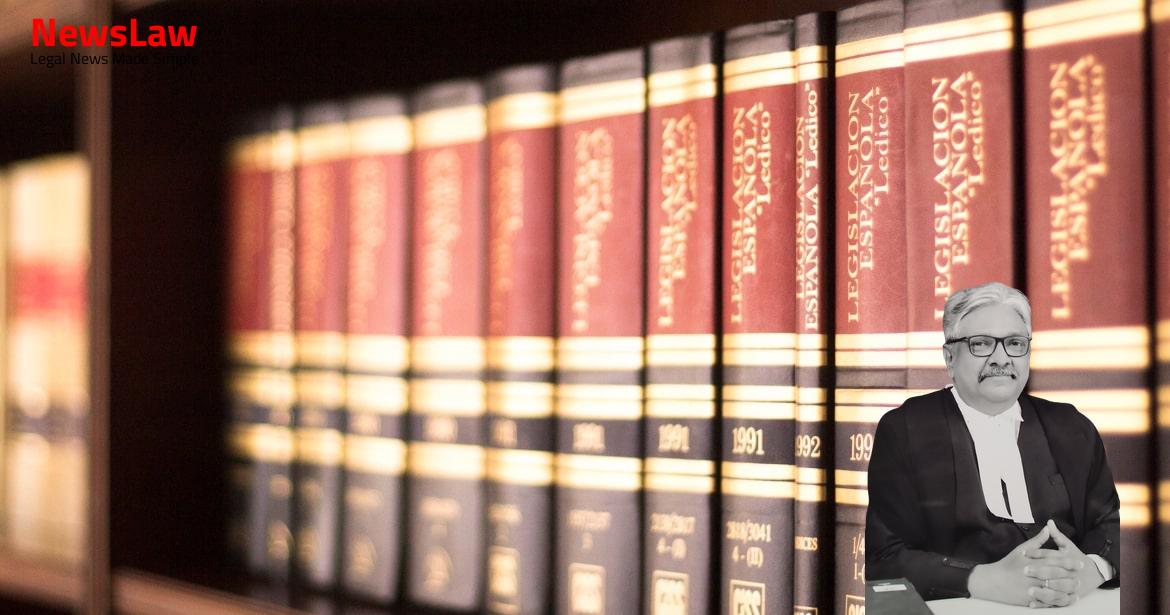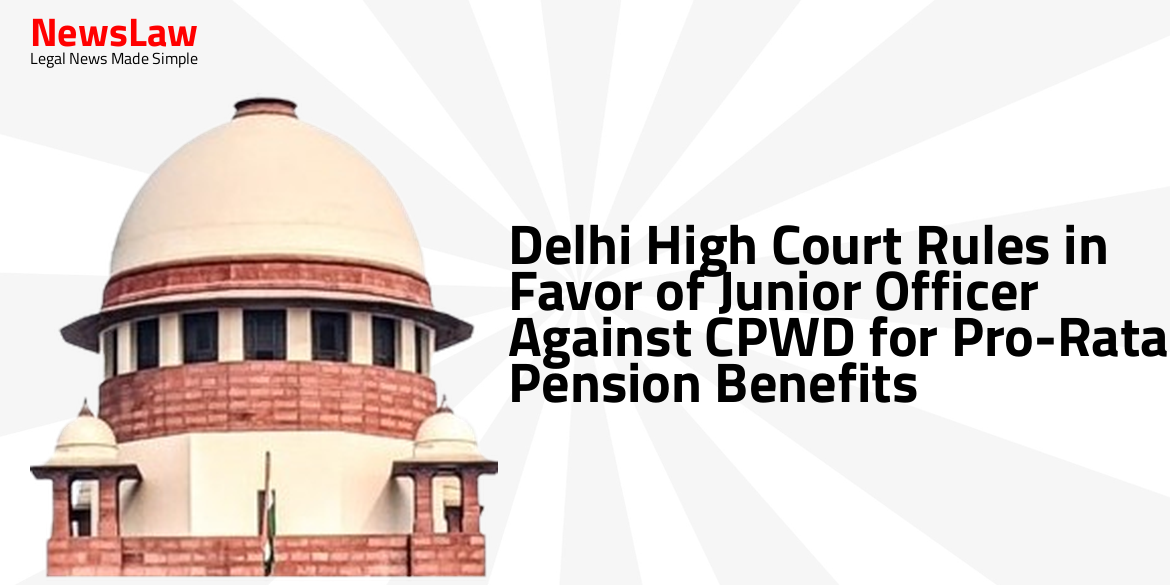Explore the insightful legal analysis conducted by the court regarding the Constitution 97 Amendment Act, particularly focusing on the validity of Part IXB. The judgment delves deep into the procedural and constitutional intricacies of the Amendment, offering valuable insights into the implications on federalism and state legislative powers. Stay tuned to unravel the complexities of this significant legal case.
Facts
- Petitions raised question of whether Part IXB is valid without ratification by half of the States under Article 368(2)
- Division bench of Gujarat High Court decided on this issue on 22.04.2013
- Appeals raise question on vires of Constitution 97 Amendment Act, 2011 which introduced Part IXB
- Constitution 97 Amendment Act was passed by Lok Sabha on 27.12.2011 and Rajya Sabha on 28.12.2011
- Applications for intervention were allowed
- The High Court judgment declared the constitutional amendment inserting Part IXB as ultra vires the Constitution of India due to lack of requisite ratification under Article 368(2) proviso.
- The ruling will not affect amendments made in Article 19(1)(c) and the insertion of Article 43B in the Constitution of India.
- The cooperative movement in India has legislative origins in the Cooperative Societies Act of 1904 and the Co-operative Societies Act of 1912.
- These Acts can be traced back to the Government of India Act, 1919.
Also Read: Interpretation of Section 43B: Debentures vs. Interest Payment
Issue
- Parliament’s power to amend Constitution through Article 368 questioned
- Possibility of Parliament increasing amending power to confer unlimited power on itself examined
- Concerns raised about potential damage to fundamental aspects of Constitution
Also Read: Ensuring Transparency in Electoral Processes
Arguments
- Shri Venugopal argued that the doctrine of severability should be applied, and multi-State cooperative societies falling under Part IXB should be upheld, especially since 17 out of 28 states have enacted legislations in line with Part IXB.
- He emphasized that Parliament exercised the constituent power, not legislative power, when inserting Part IXB into the Constitution.
- Shri Venugopal pointed out that the impugned judgment’s finding on federalism being affected was unnecessary if the Amendment violated Article 368(2) proviso.
- He contended that further amendments without ratification would erode State legislative powers, potentially shifting from quasi-federal to unitary.
- Additionally, he argued that since Part IXB impacts Entry 32 List II, it necessitates ratification by the States as per Article 245.
- He cited the K. Damodarasamy Naidu & Bros. case to support his argument on requiring ratification for the Amendment.
- Furthermore, Shri Venugopal underlined that the 97th Amendment had support from most states and was subject to detailed consultation, indicating tacit acceptance by the states.
- He also mentioned that the Constitution’s basic federal structure would be affected if the Amendment passed without ratification.
- Shri Venugopal referred to Article 243ZR and 243ZT to highlight how Part IXB diminishes State legislative powers under Entry 32.
- Lastly, he argued that the Doctrine of Severability should be applied, emphasizing Parliament’s exclusive legislative competence over multi-State cooperative societies.
- Argument made by the respondent relied on D.C. Wadhwa v. State of Bihar
- Indirect achievement through insertion of Part IXB challenged
- Support by Intervenor in IA No 4/2014 CA Nos 9108-9109/2014
- Absence of argument on Part IXB violating basic structure doctrine
- Judgment confined to procedural aspect of Article 368(2) proviso
- No substantive challenge to Part IXB against basic structure doctrine
- Citing Sajjan Singh and Wanchoo, J’s judgment in Golak Nath for the applicability of tests
Also Read: Preventive Detention Analysis in Fraud Case
Analysis
- Parliament has exclusive power to make laws with respect to any matters listed in List I in the Seventh Schedule.
- Parliament, and State Legislatures, subject to Parliament’s power, can make laws with respect to matters in List III in the Seventh Schedule.
- State Legislatures have exclusive powers to make laws in respect of matters in List II in the Seventh Schedule, subject to clauses (1) and (2).
- The three lists (Union List, Concurrent List, State List) distribute legislative authority between Parliament and States.
- Legislature of a State may make laws affecting co-operative societies adhering to specific principles like voluntary formation, democratic member control, etc.
- Constitutional provisions focus on the promotion of co-operative societies and define their functioning.
- Respective Articles outline restrictions and conditions to be followed by State legislatures in relation to co-operative societies.
- The legislative and executive powers of States vis-a-vis the Union are subject to specific conditions mentioned in Part IXB of the Constitution.
- Role of State legislatures in making provisions for co-operative societies and the audit of their accounts.
- Application of Part IXB to Union territories and clauses to be adhered to in such territories.
- The doctrine of severability has been applied in cases challenging the validity of amendments altering the basic structure.
- The power of Parliament to legislate in matters contained in List I is supreme despite anything in Article 246(3).
- The principle of ‘notwithstanding’ and ‘subject to’ in Article 246 interprets the supremacy of the legislative powers of Union and States.
- The ‘exclusive’ power of State Legislatures in List II is as ample as that of Parliament.
- A constitutional amendment should not damage the basic structure or essential features of the Constitution.
- The alteration of state legislative power in an oblique manner does not violate the concept of federalism.
- Procedural limitations restrict the mode of exercise of the amending power.
- The Seventeenth Amendment did not make a direct change in Article 226.
- The discussion revolves around whether the part dealing with multi-State co-operative societies in Part IXB can be separated from the part dealing with co-operative societies operating only within a State.
- Reference is made to the Kihoto Hollohan’s case, where the majority and minority opinions were divided on the severability of Paragraph 7 of the 10th Schedule from the rest of the Schedule, to determine if the Schedule can function without Paragraph 7.
- The grounds raised in the writ petition refer to the infraction of the federal principle due to the amendment affecting ‘co-operative societies’ needing ratification.
- Parliament’s intention was to establish homogeneity in legislative value judgments declared in the grundnorm itself.
- The Doctrine of Severability must be applied on solid foundations.
- No specific grounds or arguments were raised before the High Court regarding striking down the entirety of Part IXB.
- The argument is presented that even multi-State co-operative societies would require ratification due to the truncation of Entry 44 List I, similar to Entry 32 List II.
- It is argued that the application of the Doctrine of Severability differs from the view taken by another esteemed Brother.
- The substantial provisions (Article 243ZI to 243ZQ) being deemed unconstitutional render related provisions in Article 243ZR and Article 243ZS unworkable.
- Resurrecting the dead provisions in Article 243ZI to 243ZQ and Article 243ZT would be necessary to sustain the provisions in question.
Decision
- The Appeals are dismissed due to the provisions found unconstitutional.
- Articles 243R and 243ZQ are deemed unworkable without the provisions that have been found unconstitutional.
Case Title: UNION OF INDIA Vs. RAJENDRA N SHAH (2021 INSC 340)
Case Number: C.A. No.-009108-009109 / 2014



